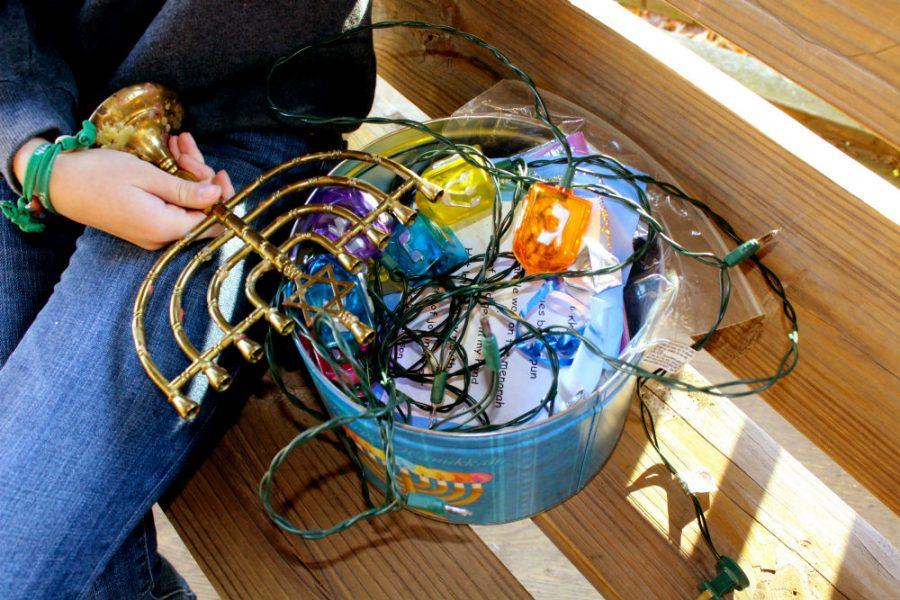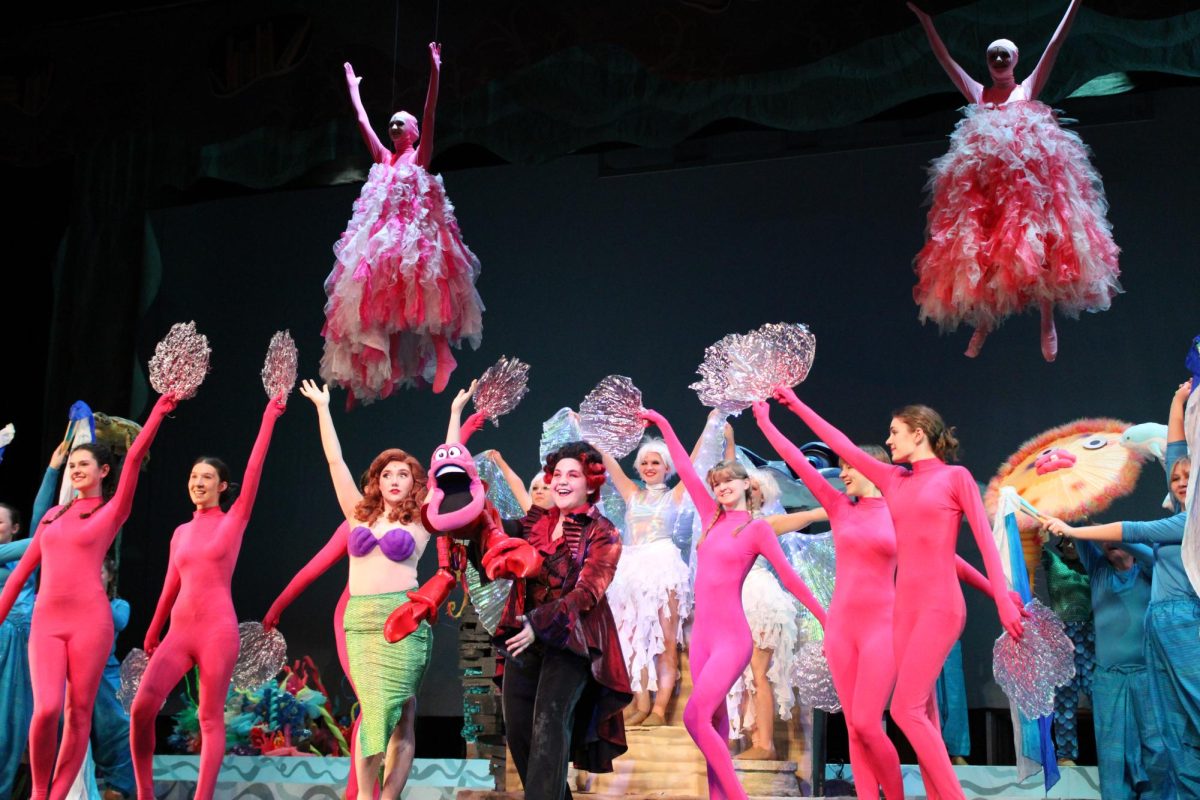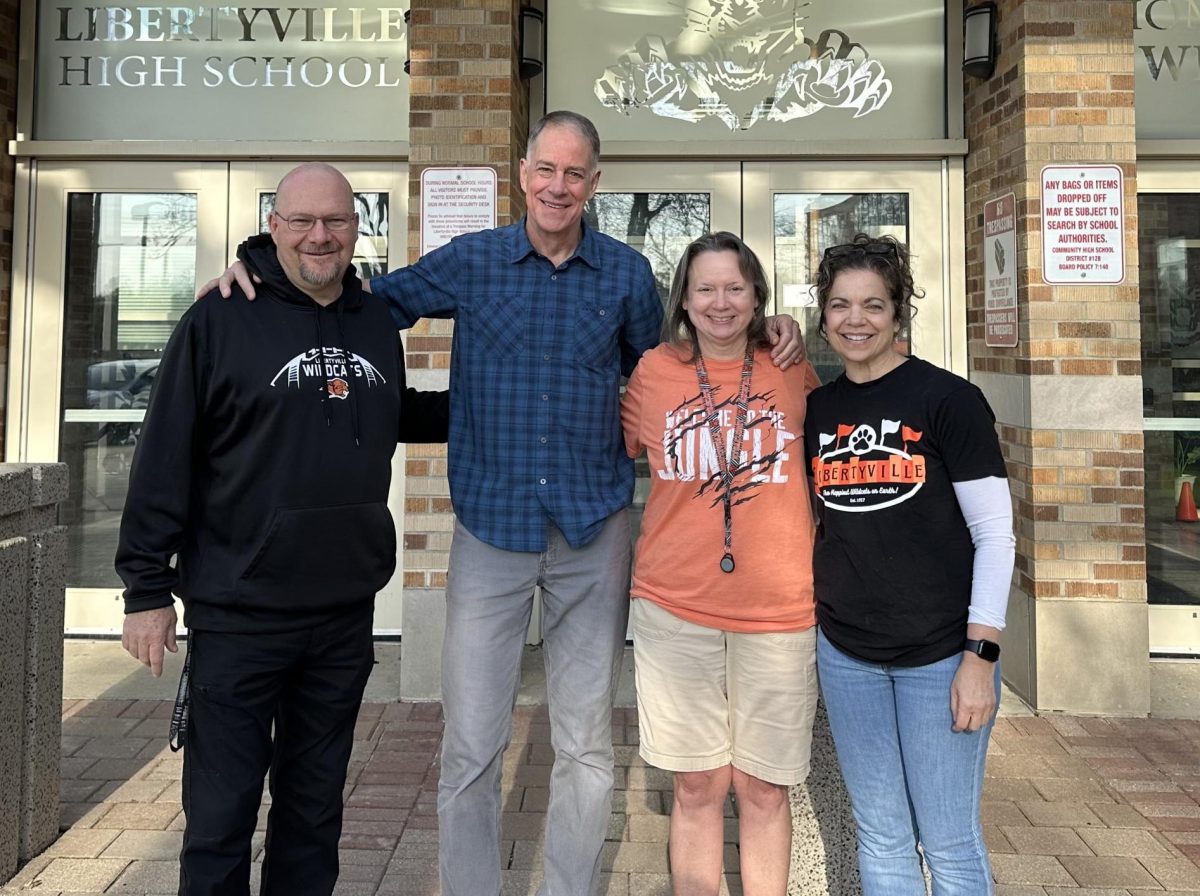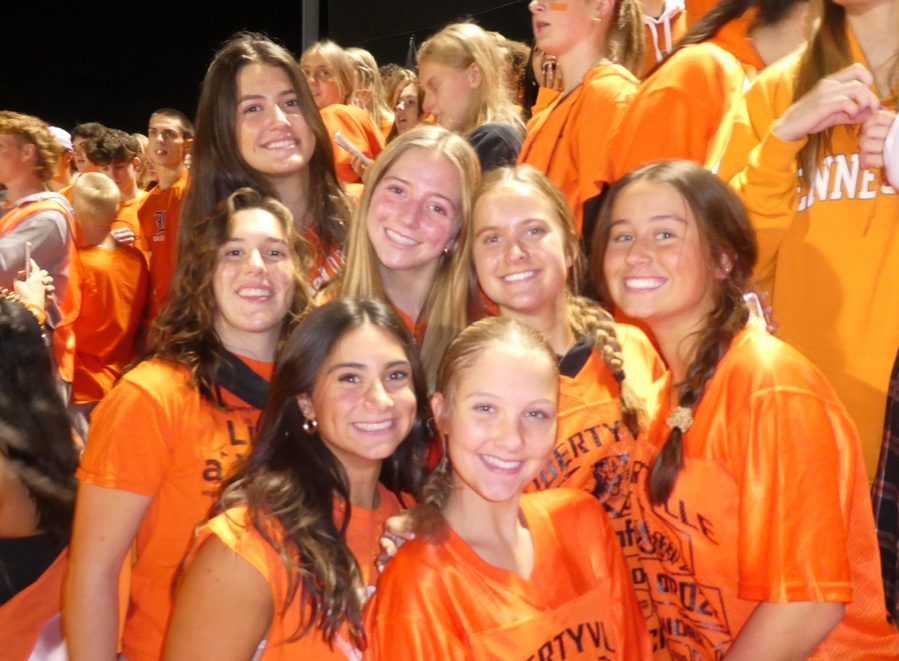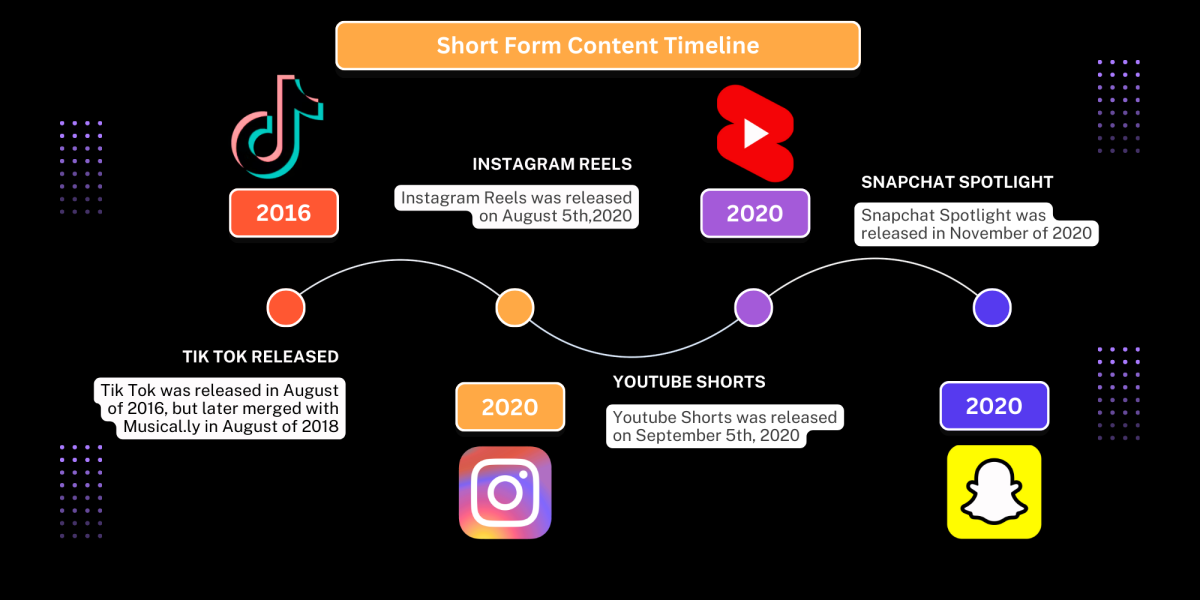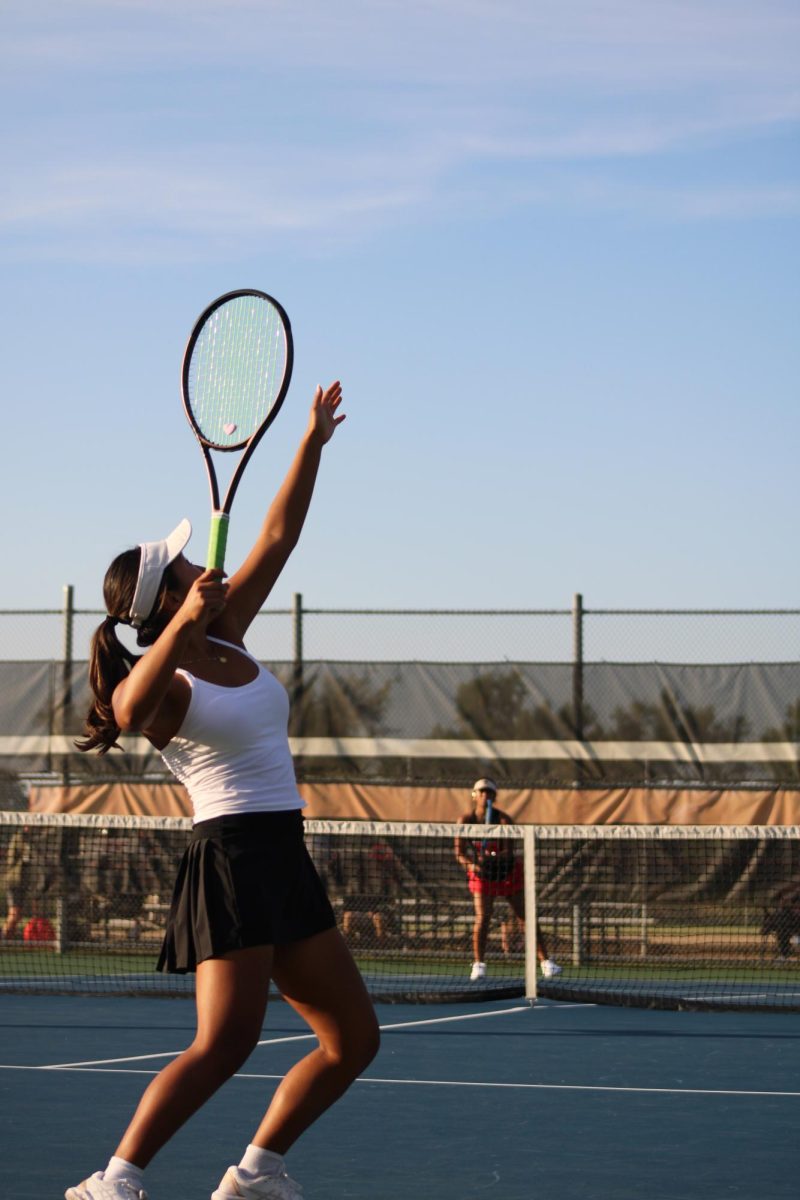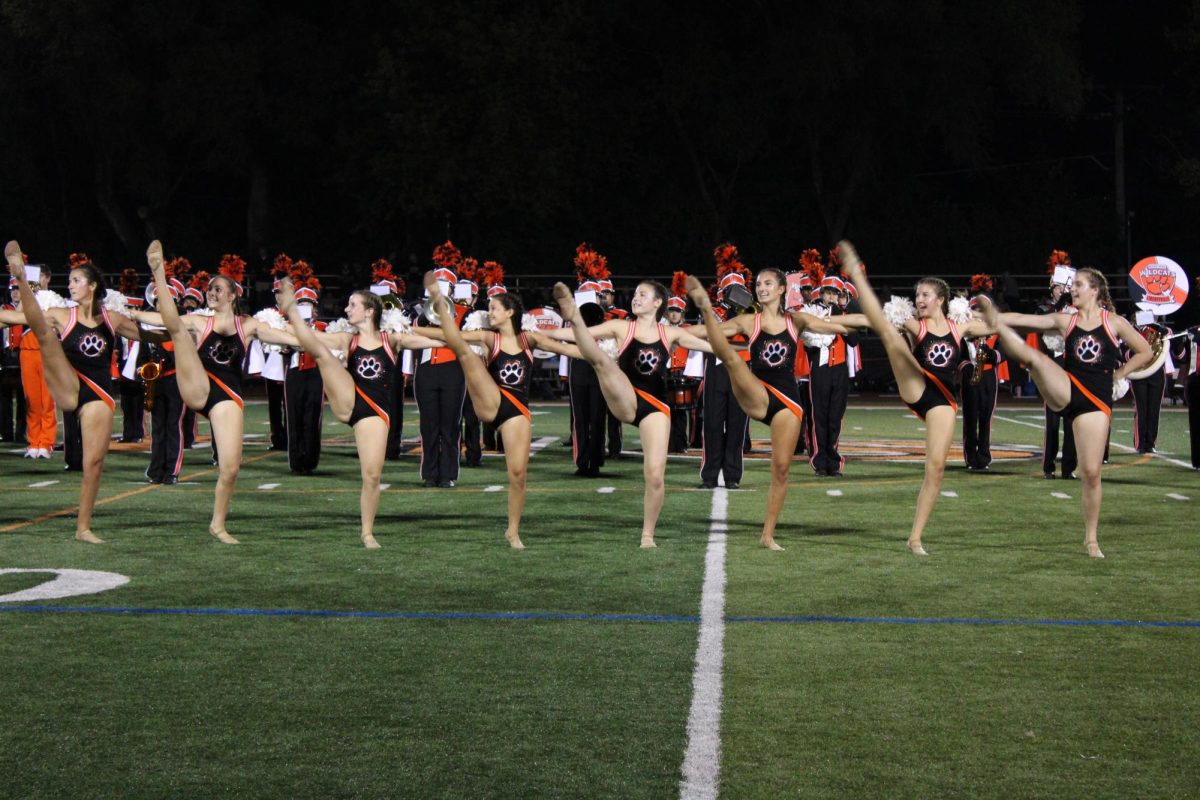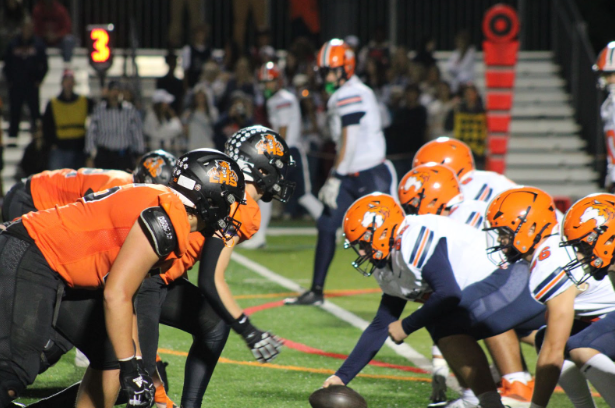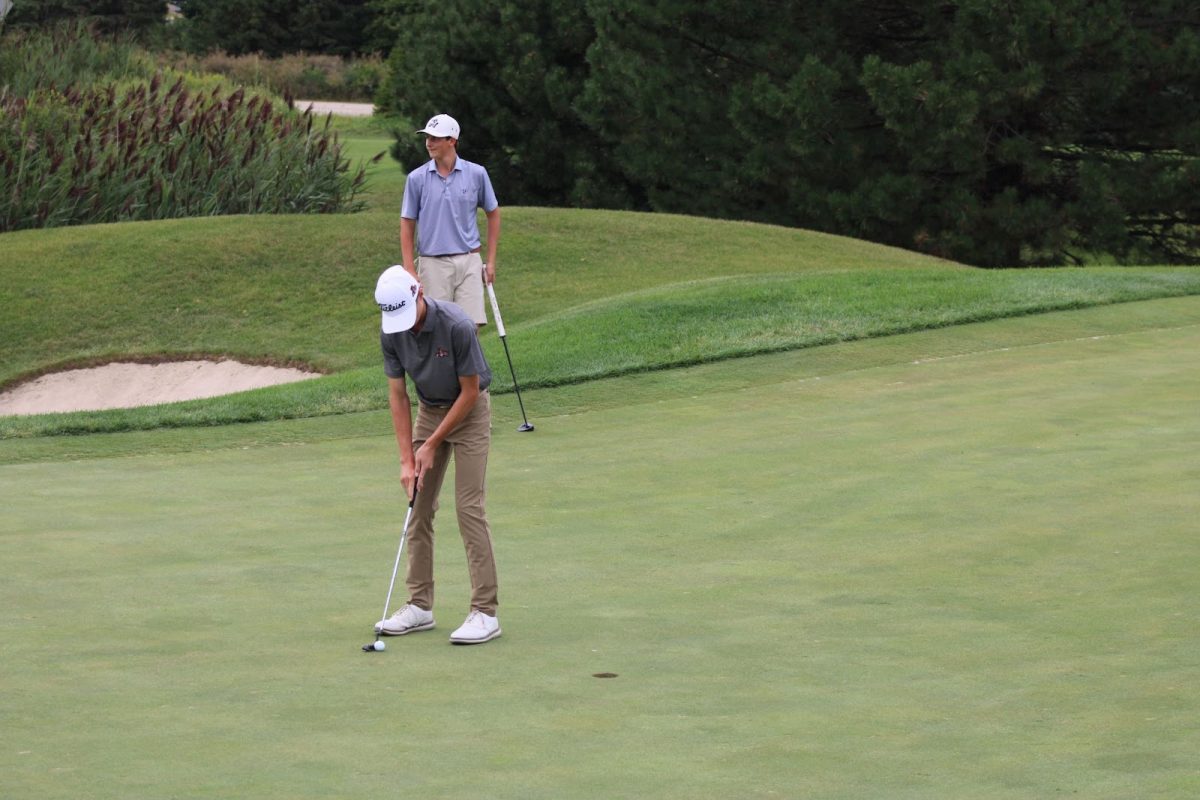As Bing Crosby once sang, “It’s beginning to look a lot like Christmas.” But for some students in and around the Libertyville area, it’s not that exciting. For Jewish, Muslim, and non-religious students, this time of year, “the most wonderful time of the year,” may not be in December.
Merry…Hanukkah?
Most people know that Hanukkah is around the holiday season and often realize that the date is not static, but many do not really know how much the date can change. Since Hanukkah follows a lunar cycle instead of a Gregorian calendar, which is commonly used throughout the United States, the date of Hanukkah can change to any time between late November and late December.
This means that Hanukkah can sometimes fall over Thanksgiving, which a Jewish student, junior Sophie Richardson, describes as “so horrible. Like, Hanukkah is way better when [there’s] snow on the ground … that’s part of what makes the holiday season fun, just all being together.”
Even though many people know about Hanukkah and other Jewish holidays, such as Rosh Hashanah and Yom Kippur (since there is no school on those holidays), there is one glaringly large mistake that often happens: a disproportionate emphasis is placed on Hanukkah over other Jewish holidays.
Richardson explained that Hanukkah is “not a big holiday. It’s actually like such a minor holiday, it barely matters, but it became Americanized and celebrated.”
This has led to Hanukkah being celebrated in a way that is “loose. [The traditions are] made by each family,” Richardson stated. “We light candles every night. We usually do one party with friends, but that’s about it.”
Rosh Hashanah and Yom Kippur are the major holidays for Judaism, although they often do not get as much attention as Hanukkah does.
This is not the only misconception people have about Hanukkah. While many people think presents are given for every night of Hanukkah, this is rarely the case. “I do not receive presents each day. Now that my sister and I are older, we get big gifts for 2-3 days,” explained sophomore Hannah Rubinstein.
Rubinstein celebrates Hanukkah with different traditions than Richardson: “My family [on] two of those days [of Hanukkah will] go to my grandparents’ house or aunt’s and light the menorah and eat deli food.”
When it comes to Christmas, neither Richardson nor Rubinstein is particularly phased by others’ celebrations of it. They both say, though, that it can be difficult when everyone else is talking about it, since they are excluded from the conversations.
“I do feel left out [when my friends talk about Christmas] because they realize that I’m Jewish, and that they should just talk about the holiday season in general,” Rubinstein elaborated.
All about Eid
Rarely do Muslim holidays fall around the “holiday season;” Muslims mainly celebrate Eid al-Adha and Eid al-Fitr. “Eid al-Fitr happens after the month of Ramadan, so the month of fasting, and then we celebrate at the end, and then Eid al-Adha is when we do pilgrimage,” explained senior Areebah Waseem, who started the Muslim Student Association at Libertyville and is the president of the club.
According to CNN, Eid al-Adha is the feast of sacrifice and commemorates when God appeared to Abraham in a dream and told him to kill his son to show obedience.
Eid al-Fitr occurs after the month of Ramadan (the month of fasting). Families get together and a have a big feast and celebrate the end of Ramadan.
Neither Eid holidays fell around Christmastime this year. They vary each year on when they occur, due to the fact that Muslims also follow the lunar calendar rather than the Gregorian calendar. This year, Eid al-Adha was in September and Eid al-Fitr fell in July.
Since neither holiday falls in November or December, Muslims are left out of this holiday season. “Five years ago, it was during the Christmastime, which was convenient for us, cause a lot of gifts were there, like you know, discounts and stuff,” explained Waseem.
Some students who don’t celebrate Christmas, like Waseem, can sometimes feel left out of Christmas activities: “I don’t get to join their holiday spirit. Everybody’s looking forward to Christmas, you know, gifts and family and a big feast, while I am pretty much… out to dinner with my friends that day just for fun. It’s kinda sad, but I am happy that I’m Muslim,” she said.
With Christmas music blasting through the speakers as hallway music, WISH, and the decorations around school, Waseem, along with other non-Christian students, have to see it and go along with all the “Christian-based religion activities and stuff like that,” said Waseem. “WISH, for example, is for Christmas, [and] that’s for Christians.”
Many school districts around the country don’t have Muslim holidays off, except for New York public schools who take Eid off, “We have Jewish holidays, and then we have Christian holidays. Why can’t we have Muslim holidays?” said Waseem. “ Islam is one of the biggest religions, or the largest religion, and it’s growing, you know. 1.2 billion people in the world are Muslim.”
Many Muslim students want equal recognition for their holidays. For both Waseem and Libertyville junior Mariam Tolba, during their holiday, they miss school and spend time with their family. “We’re like partying all day, and some of us even come to school, but I like to party with my family,” explained Waseem. Eid translates to “celebration” in Arabic.
Tolba has been trying to get Muslim holidays off since last year. She began a petition on Sep. 16, 2015,and was able to obtain 200 signatures. She was then invited to a school board meeting, but the board rejected her motion due to the fact that Eid follows the Lunar calendar, instead of the Gregorian calendar and the date switches every year. Tolba said she is currently trying to contact the Lake County Board of Education in order to have it on next year’s calendar.
“It’s kinda like choosing between education and religion, and I feel like no one should have to do that,” expressed Tolba “I feel like all religions should be accepted and respected by the school.”
Chrismukkah and Beyond
While most students only identify with one religion, some students at LHS are both Jewish and Christian. Sophomore Dylan Heimert is one of these people, as he celebrates both Hanukkah and Christmas.
Heimert and his family celebrate both holidays very similarly to the people who celebrate just one of them. Both holidays can blend into one, he explained: “‘Cause it’s the same season and they’re close to each other, I just call them the holidays.”
A stereotypical question these students are asked is, “Do you identify with one more than the other? Like, you can’t be both,” to which Heimert said, “I identify with both, but I’m probably more educated in Christianity.”
Libertyville is a mostly white and Christian-populated school. According to usnews.com, only 18 percent of students at LHS are minorities. Heimert, along with other so-called “cashews,” often put a lot of the attention toward their Christian side because of all the publically celebrated Christmas activities.
Although it is often assumed that most everyone celebrates Christmas, many forget that Christmas is celebrated very differently from family to family. While senior Natalie Perritano may celebrate Christmas, her experiences are different from most others, as she does not consider herself religious.
Perritano’s family’s traditions are pretty tame, as she explained, “We go to my aunt’s house at 2 in Rosemont. There’s usually some snacks out, and people put the presents under the tree.”
As to why she still celebrated Christmas, Perritano said, “It’s the only time we see our family and so we just use Christmas.” She also stated that Christmas was the same for her family as others, but with “no aspects of religion throughout the day.”
No matter how her family celebrates, Perritano explained that it is still Christmas, but for them, it is just “more of a family get together.” She does not believe that this is much different than anyone else since “the point and essence of it is still there with family.”



